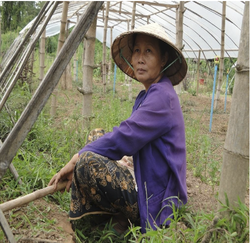Gender and Agriculture after Neoliberalism?
A workshop was organized on 19-20 July 2012 to help the United Nations Research Institute for Social Development (UNRISD) and the Graduate Institute for International and Development Studies (IHEID) assess knowledge gaps and define new perspectives to understand the relationship between the rapidly changing policy landscape, and transformations of gender power relations in the countryside.




